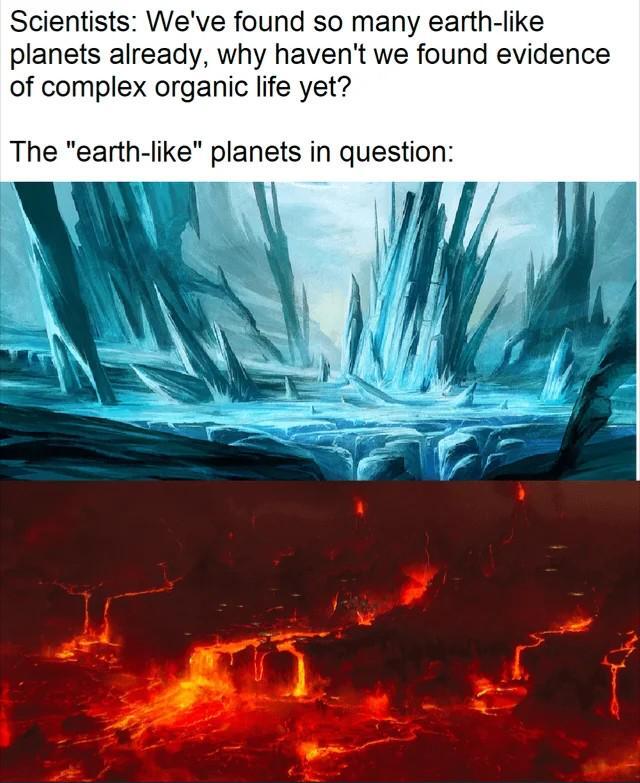this post was submitted on 26 Nov 2023
468 points (97.0% liked)
Science Memes
12651 readers
4764 users here now
Welcome to c/science_memes @ Mander.xyz!
A place for majestic STEMLORD peacocking, as well as memes about the realities of working in a lab.

Rules
- Don't throw mud. Behave like an intellectual and remember the human.
- Keep it rooted (on topic).
- No spam.
- Infographics welcome, get schooled.
This is a science community. We use the Dawkins definition of meme.
Research Committee
Other Mander Communities
Science and Research
Biology and Life Sciences
- [email protected]
- [email protected]
- [email protected]
- [email protected]
- [email protected]
- [email protected]
- [email protected]
- [email protected]
- [email protected]
- [email protected]
- [email protected]
- [email protected]
- [email protected]
- [email protected]
- [email protected]
- [email protected]
- [email protected]
- [email protected]
- [email protected]
- [email protected]
- [email protected]
- [email protected]
- [email protected]
- [email protected]
- !reptiles and [email protected]
Physical Sciences
- [email protected]
- [email protected]
- [email protected]
- [email protected]
- [email protected]
- [email protected]
- [email protected]
- [email protected]
- [email protected]
Humanities and Social Sciences
Practical and Applied Sciences
- !exercise-and [email protected]
- [email protected]
- !self [email protected]
- [email protected]
- [email protected]
- [email protected]
Memes
Miscellaneous
founded 2 years ago
MODERATORS
you are viewing a single comment's thread
view the rest of the comments
view the rest of the comments

In addition to the other helpful replies, one of the major flaws of the Fermi paradox is that it fails to account for the vastness of time. Our failure to observe spacefaring intelligent life is the metaphorical equivalent of a baby born at some point in human history somewhere on earth, opening it's eyes only long enough to blink, and not observing Cher. It doesn't mean that Cher doesn't exist, or even that Cher should be observable given that humanity is so large and old.
My favourite is the idea that it takes time to build out the "infrastructure" that allows for life. Basically, no supernovae, no life, not enough supernovae, extremely low probability of life. Even if that doesn't put Earth's life near the leading edge, we may be on the leading edge of technological civilizations.
I'd also point out that we've nearly wiped ourselves out several times, and we're headed towards making our planet incompatible with life. If the conditions for life exist AND life evolves to be sentient AND the sentient life develops communication AND the communication fosters cooperation AND the cooperation leads to technology AND that technology allows the life to survive the vastness of space AND the technology allows for interstellar travel, all that progress could end with a meteor or a virus or a particularly strong solar storm that blows through the magnetosphere and takes our atmosphere with it.
The conditions for sentient technological species exist on earth, and humans are the only ones even close to surviving in space. Dolphins, octopodes, dinosaurs, corvids nothing else is even sharing arbitrary knowledge yet. For that to even happen, we'd probably all need to be dead.